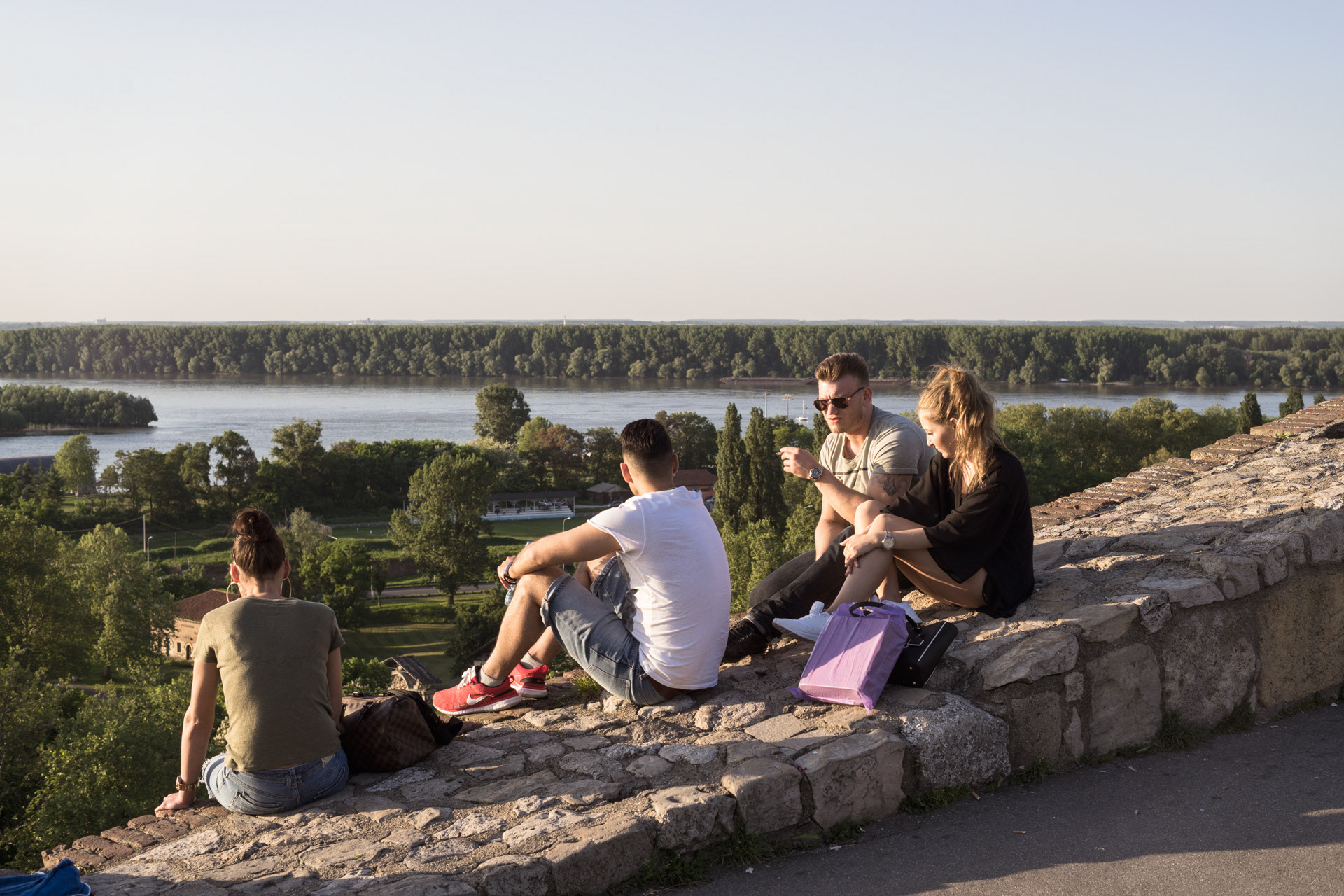Fifteen years after the NATO bombing and the removal of President Slobodan Milosevic, Belgrade still has to experience a true radical change. The city wants to shake off the weight of long wars and social division through a deep process of urban and cultural renewal, which seems to be far from the start. High rates of tax evasion and unemployment condemn the Serbian economy as the worst one of the whole Balkan region (-1.8% of GDP in 2014), while the policies of the latest governments are often midway between pro-European openings and some kind of nostalgia for the past greatness.
The vitality of the younger generation is the main push to this desire for change.
Music and street art (Belgrade is an open-air graffiti museum) are the most dynamic avant-garde scenes of the town, while some neighborhoods, which once were popular, have grown wealthier and are going through an unstoppable gentrification process.
Young artists and designers have overcome the lack of cultural spaces, previously guaranteed by real socialism, with coworking places, occupying empty buildings and creating homemade music studios. Despite an active arts scene, disillusionment remains the most common feeling in the capital. The promised foreign investments could revitalize the social fabric and ensure a real development, but the cost would be a sudden loss of identity. The same destiny happened to several Eastern Europe cities. Yet, in Belgrade only a few seem to support this memory replacement in favor of a massive privatization and speculative overbuilding.
The vitality of the younger generation is the main push to this desire for change.
Music and street art (Belgrade is an open-air graffiti museum) are the most dynamic avant-garde scenes of the town, while some neighborhoods, which once were popular, have grown wealthier and are going through an unstoppable gentrification process.
Young artists and designers have overcome the lack of cultural spaces, previously guaranteed by real socialism, with coworking places, occupying empty buildings and creating homemade music studios. Despite an active arts scene, disillusionment remains the most common feeling in the capital. The promised foreign investments could revitalize the social fabric and ensure a real development, but the cost would be a sudden loss of identity. The same destiny happened to several Eastern Europe cities. Yet, in Belgrade only a few seem to support this memory replacement in favor of a massive privatization and speculative overbuilding.
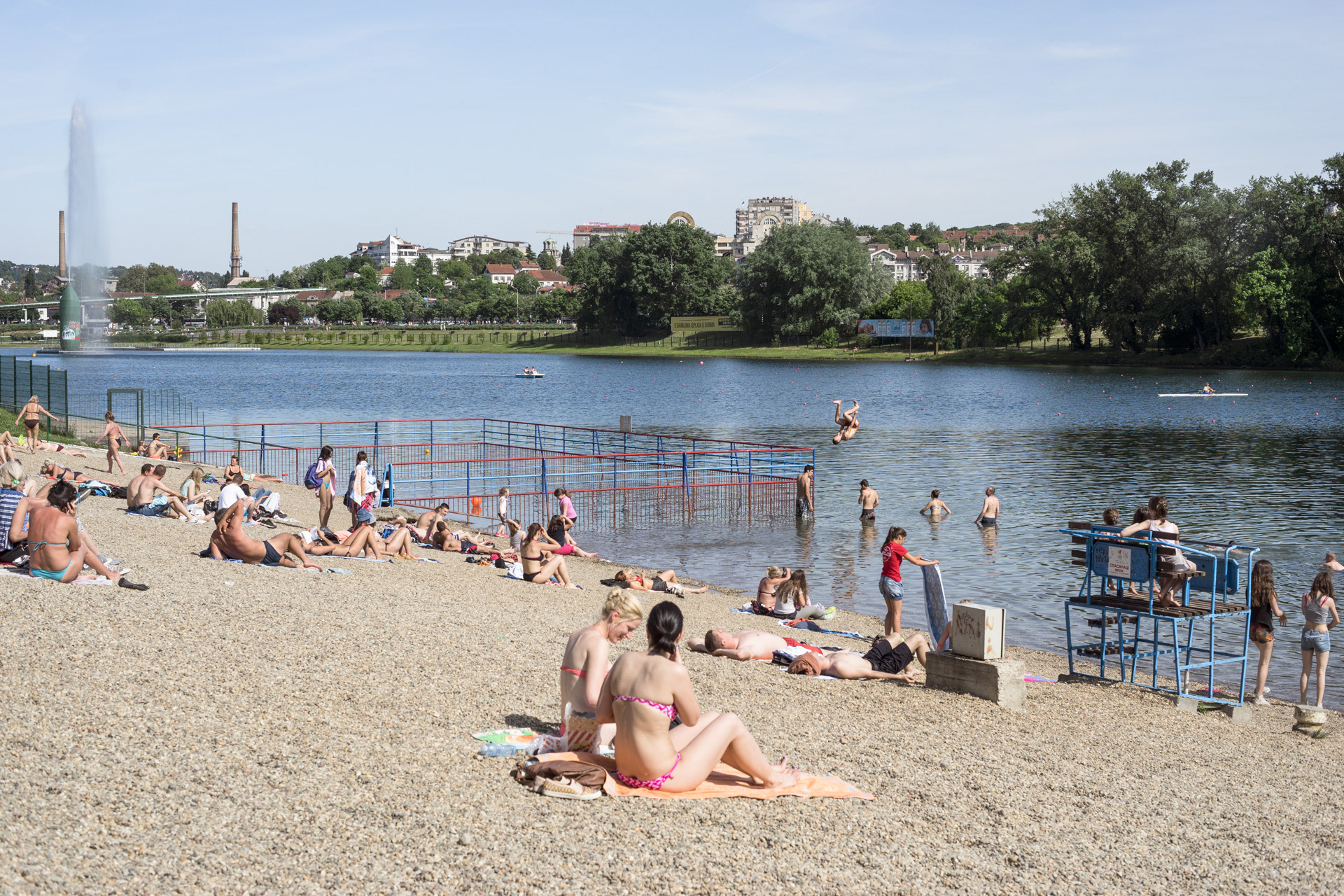
Ada Ciganlija is the island of relax and amusement for the people of Belgrade. Throughout the summer, the island become an urban beach, attended by young people and families occupying the shores of Sava river
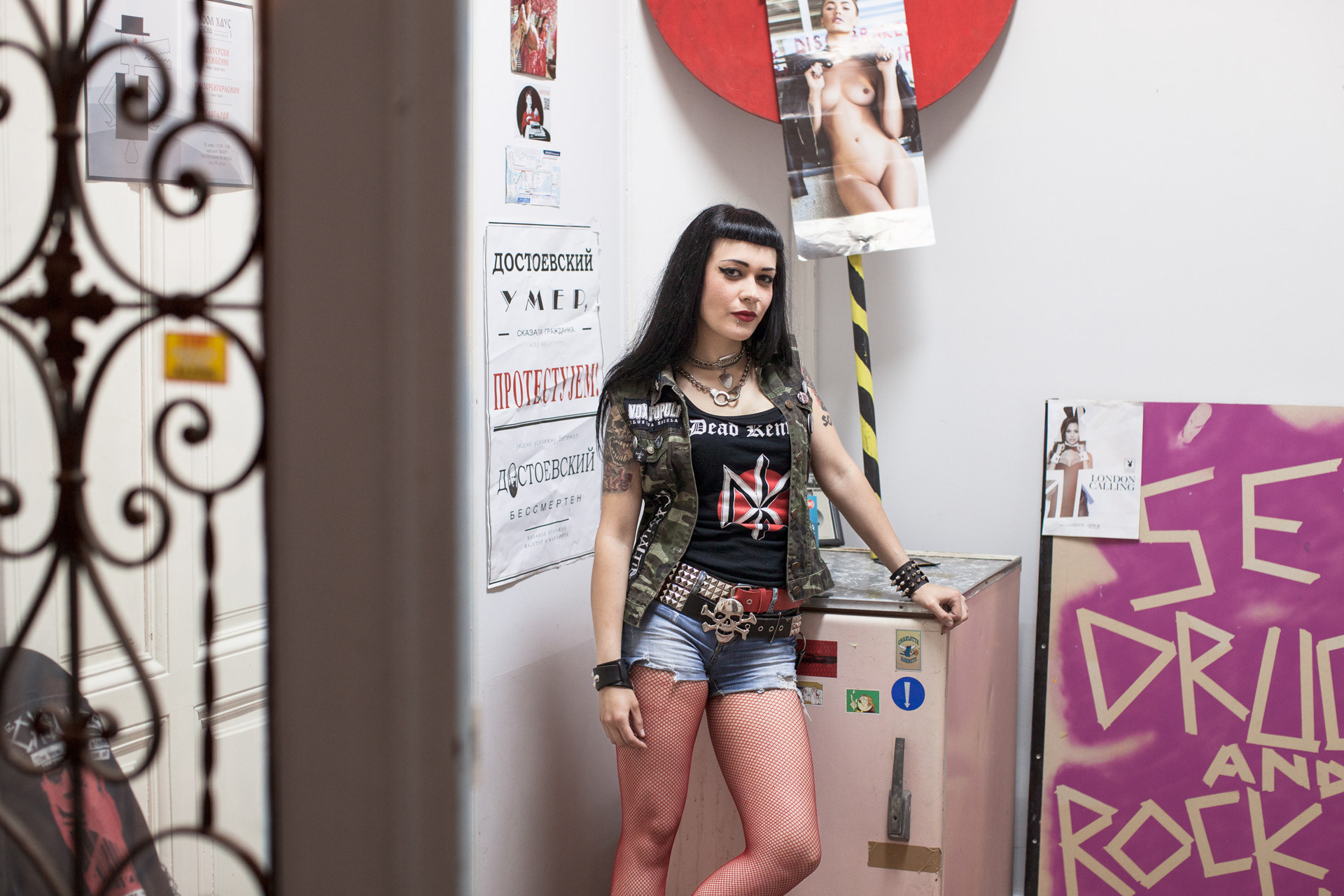
Katarina Vlašić is the leader of the all-female punk band, the Replicunts
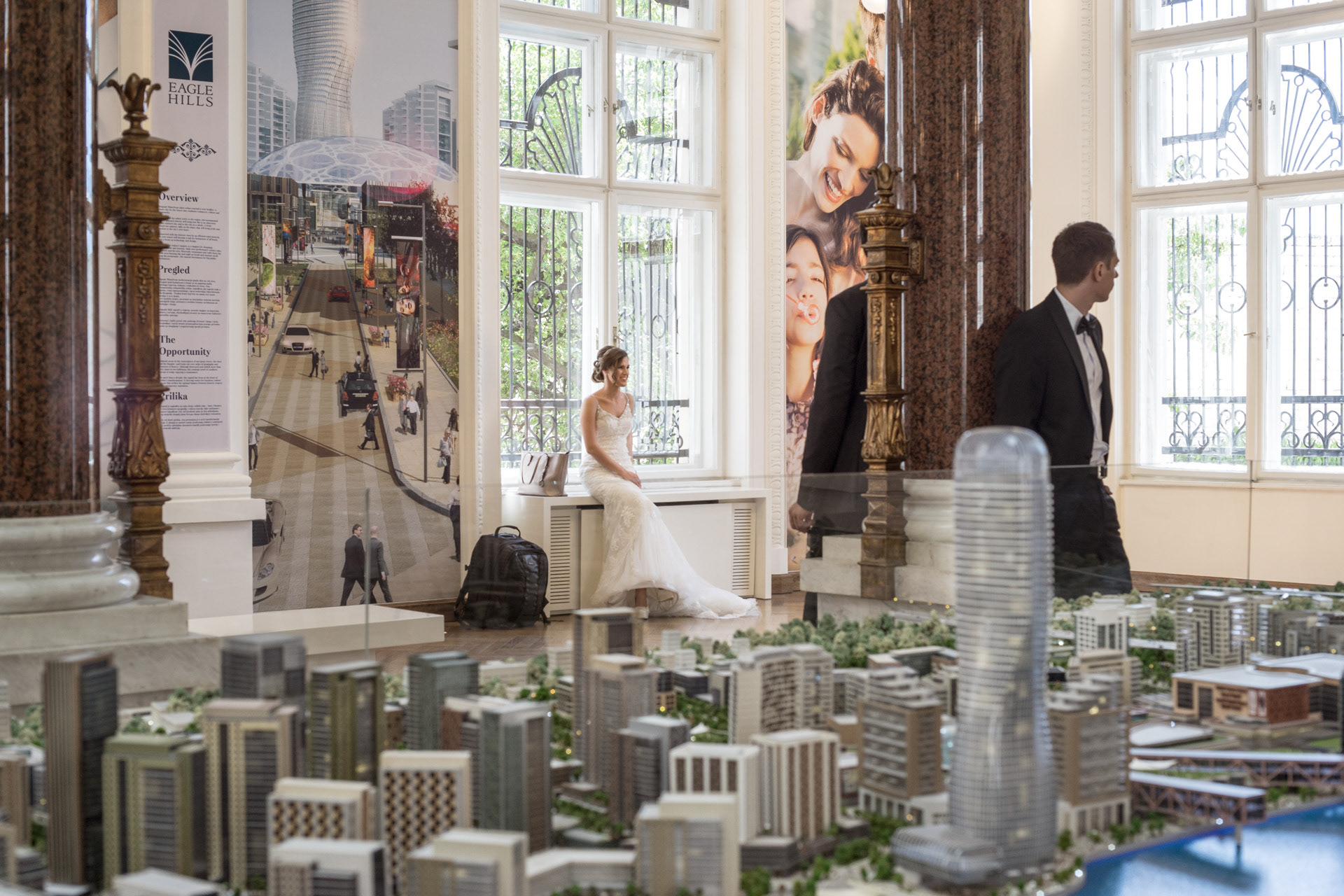
A couple of newlyweds inside the Eagle Hills headquarters, an Abu Dhabi-based company that will realize the Belgrade Waterfront. The building area plan will consist of offices and luxury apartments, 8 hotels and a huge shopping mall, in addition to the Belgrade Tower, a skyscraper taller than 200 meters. The project will take 3 billion Euros and 12 years to be completed
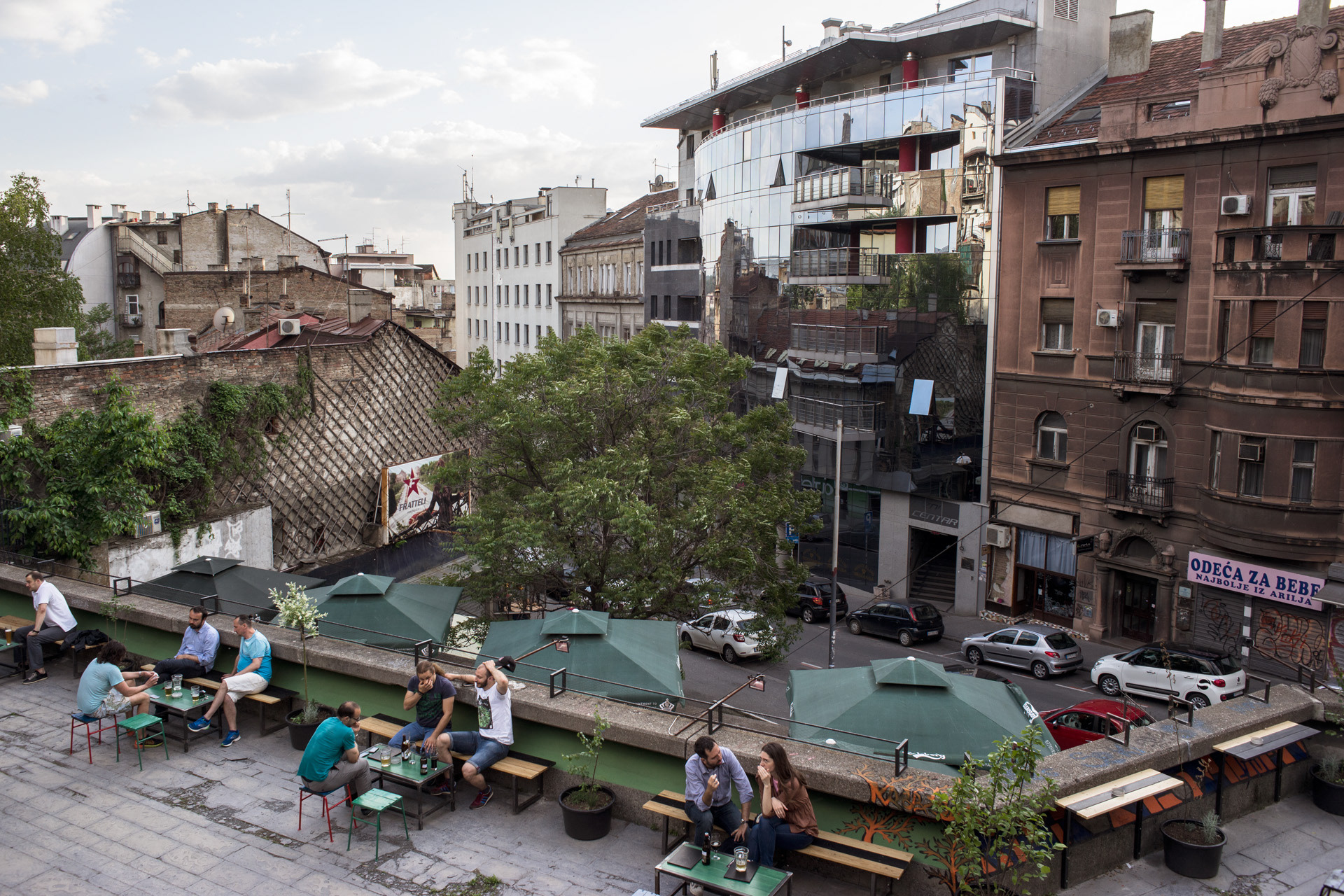
A view on Balkanska, a residential street of the city centre
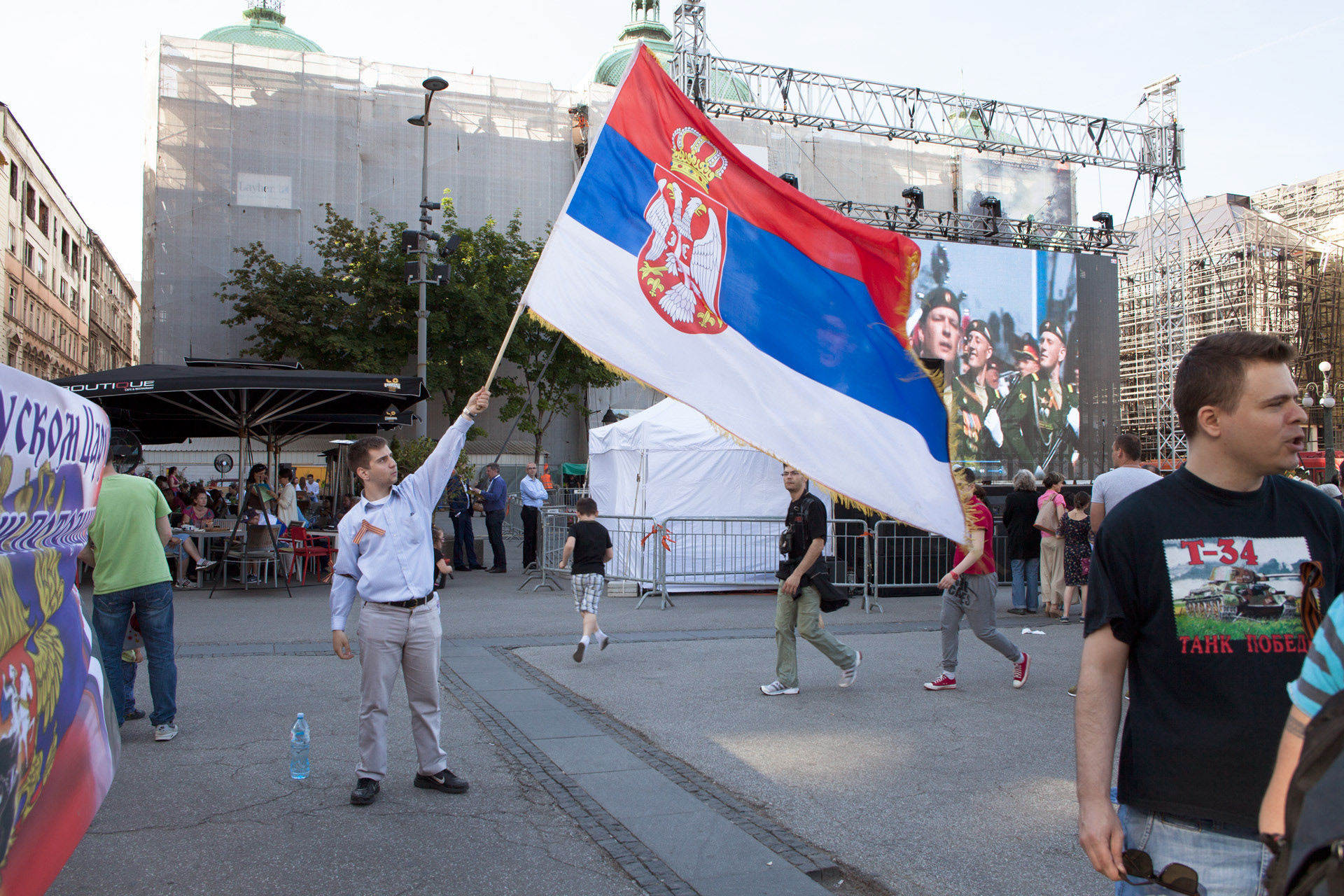
A young man showing the Serbian flag during the ceremony marking 70 years since the end of World War II in Republic Square
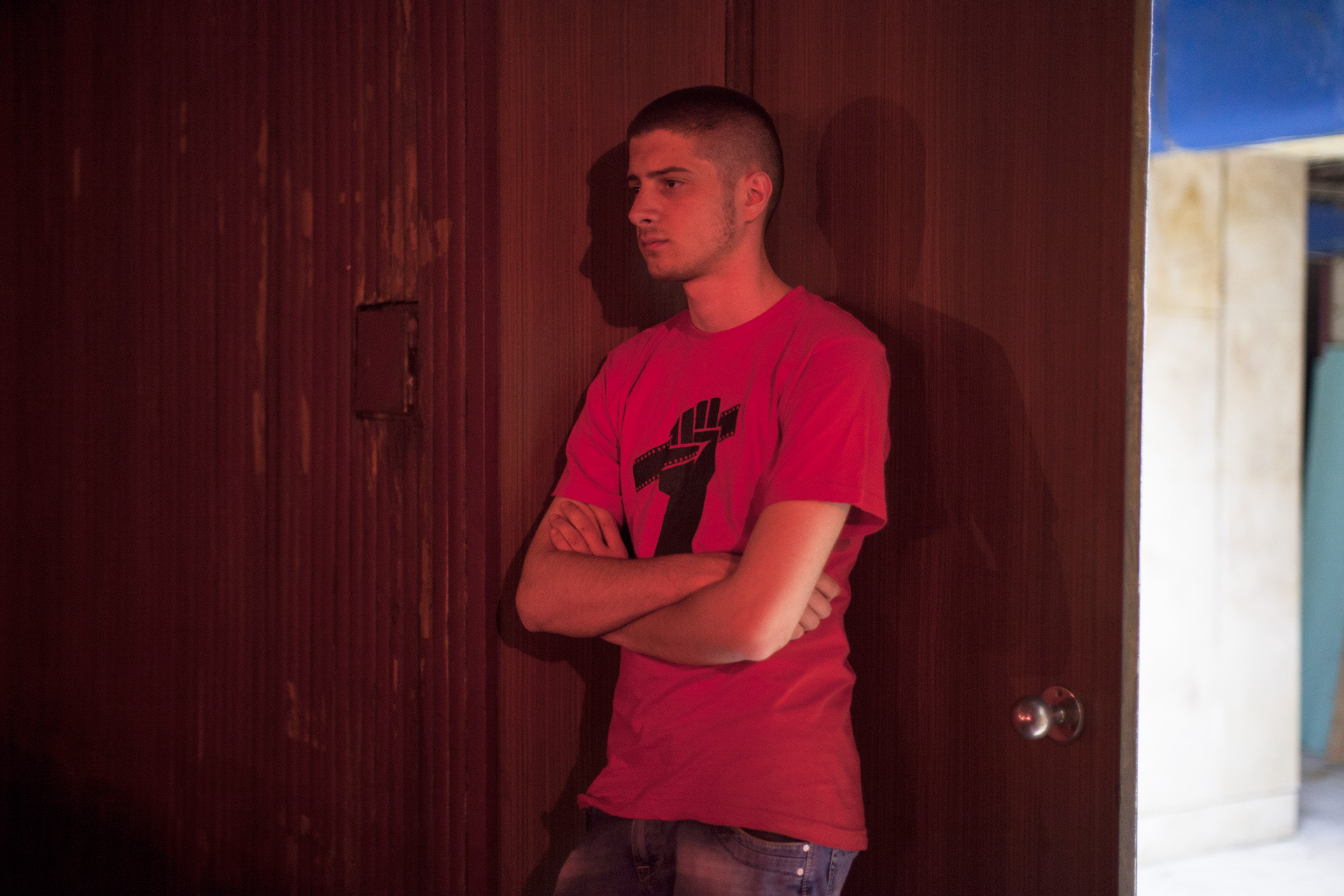
Inside Zvezda bioskop. The legendary cinema was occupied by a collective of young artists since the last November. They are struggling to avoid its final closure and the conversion of the movie theatre into a supermarket
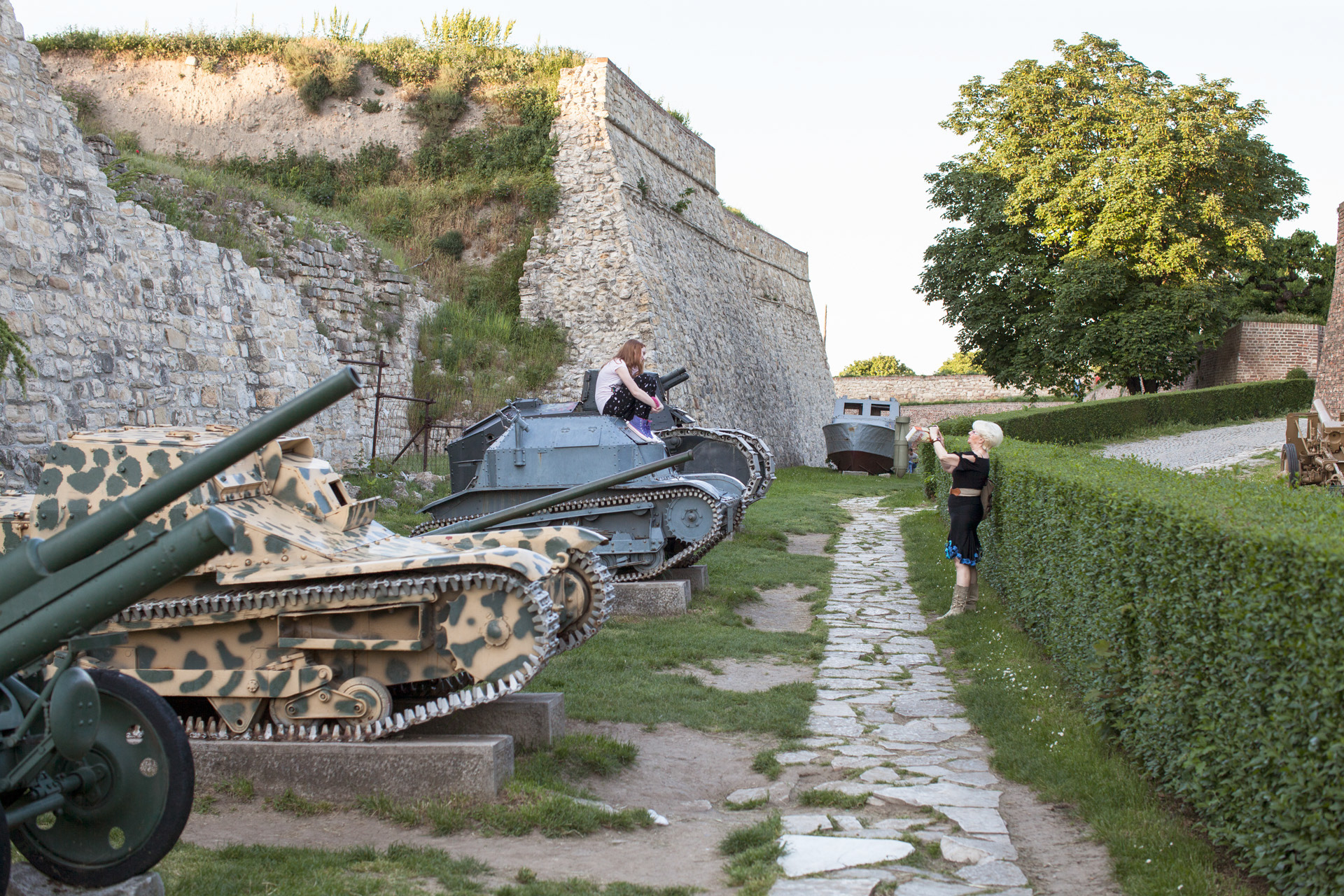
A few tanks exhibited at the Military Museum of Kalemegdan
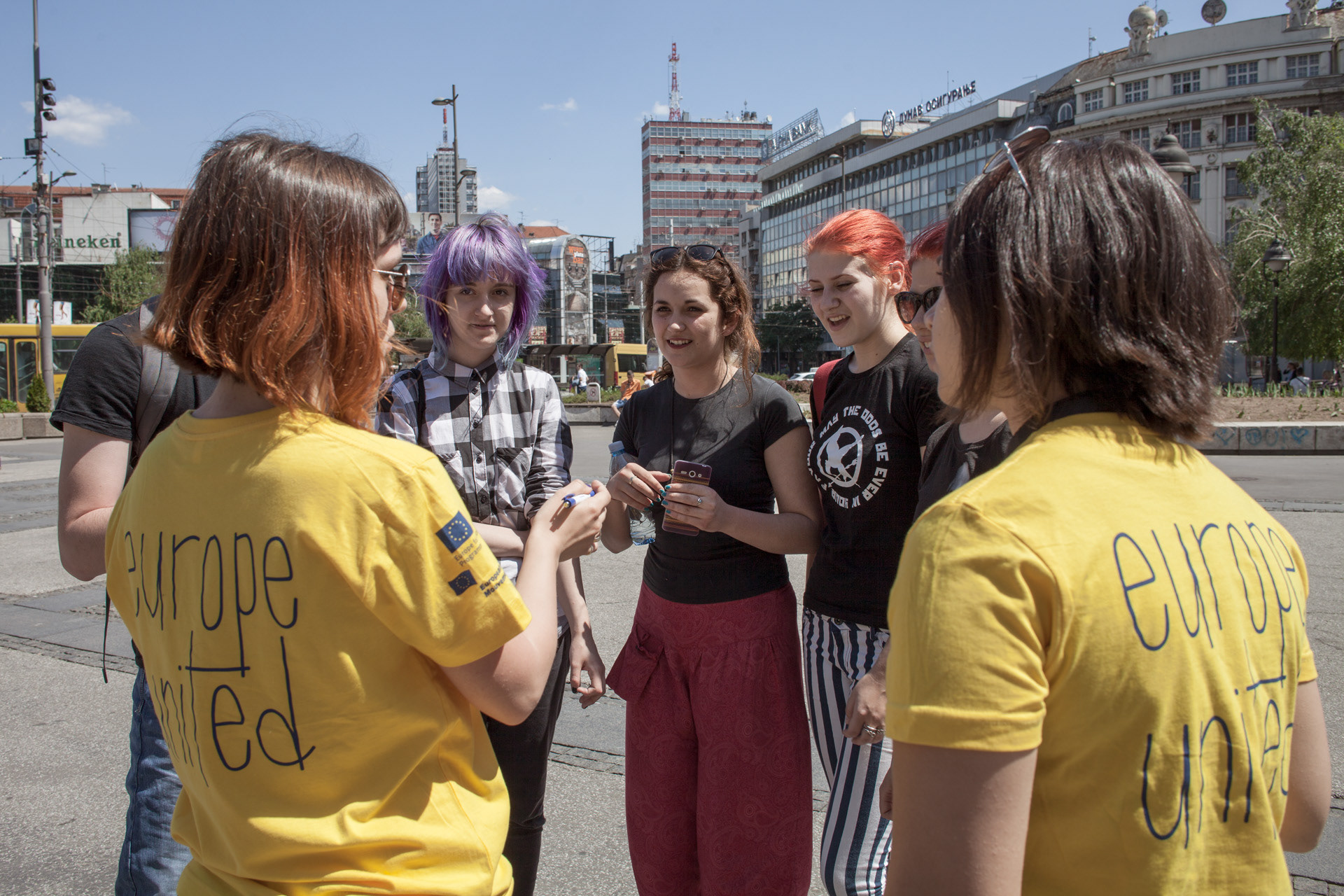
From 2014, Serbia has started the negotiations on EU accession. The path towards the entrance into the European Union seems very complicated. There are several associations raising public awareness of this matter, but their efforts are often received with a general disregard
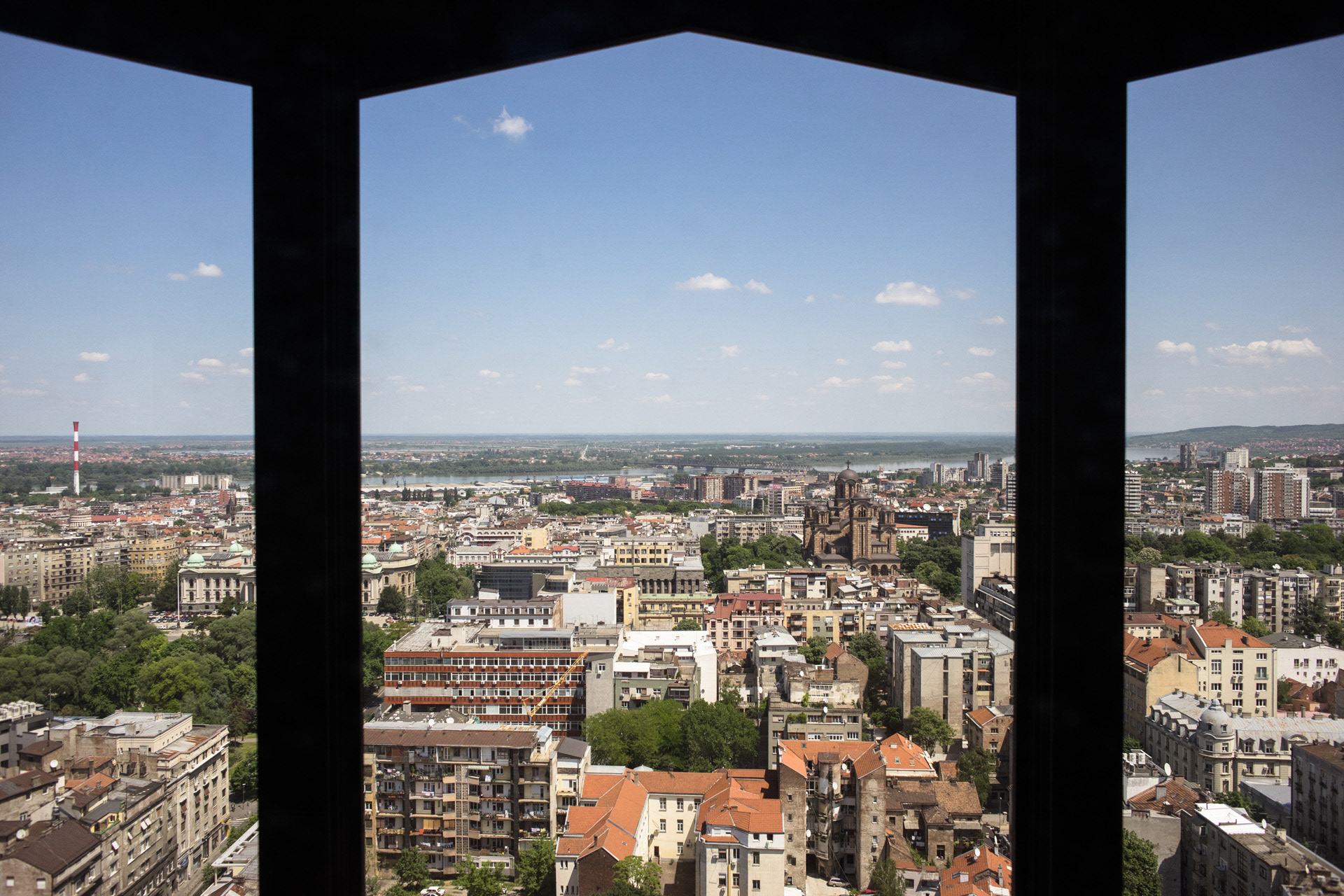
A city view from the Beogradjanka tower
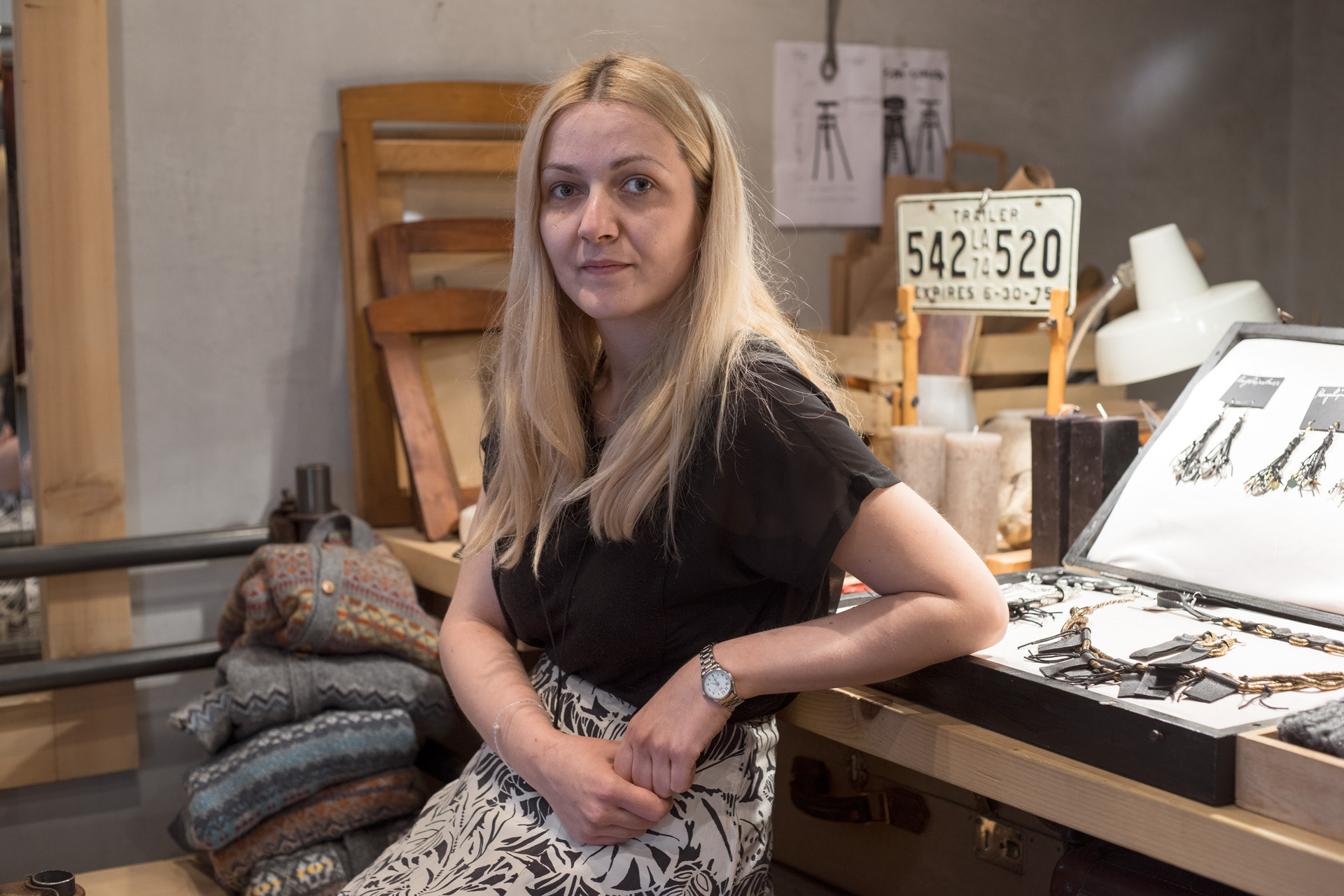
Marija Stanisic is a young stylist. Her studio is located inside the Belgrade Design District, a fashion centre that hosts shops and studios of young Serbian artists and designers
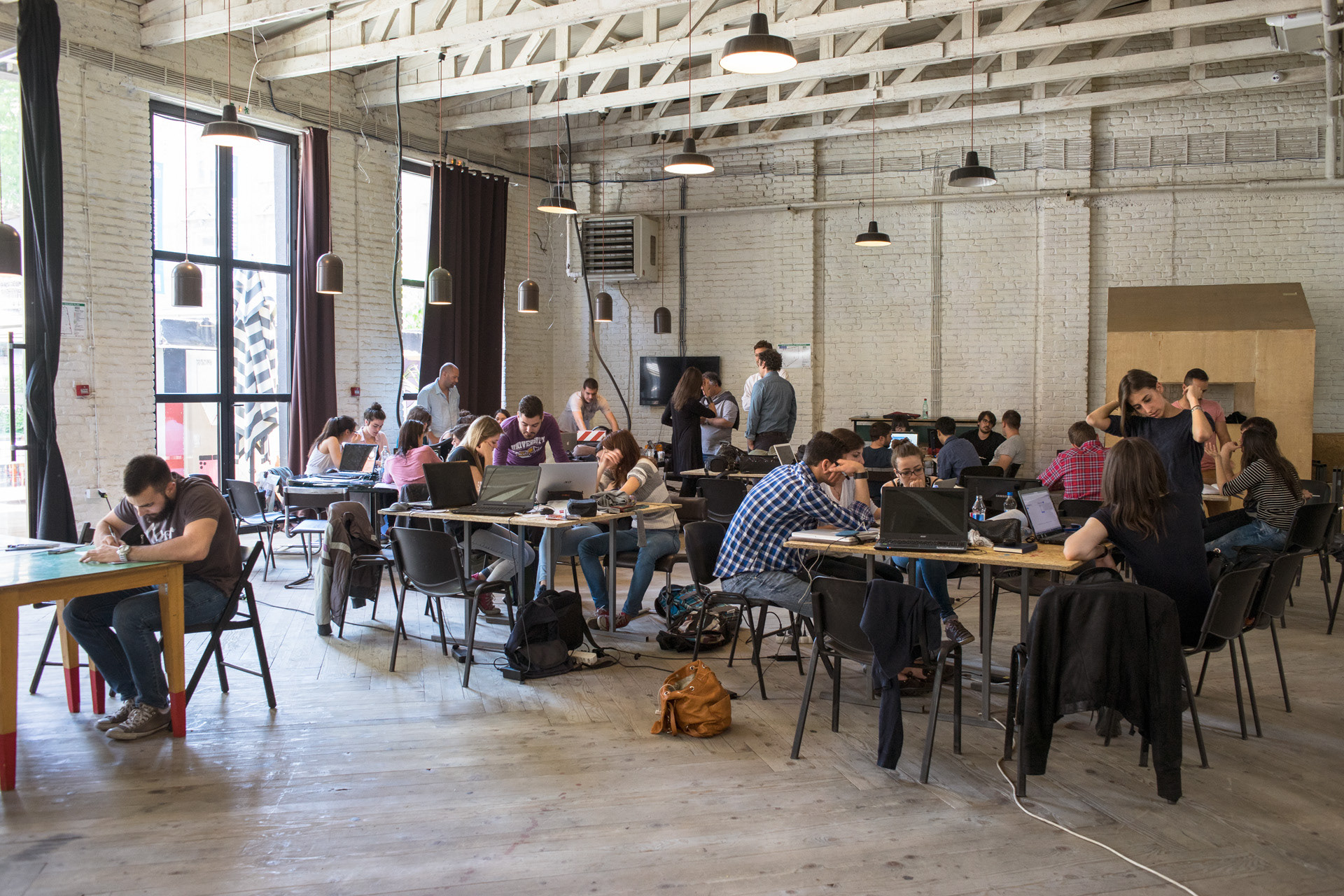
Mikser House is an important cultural centre in Savamala. Over the last few years, this old district of Belgrade changed a lot and now hosts new clubs and promising designers studios
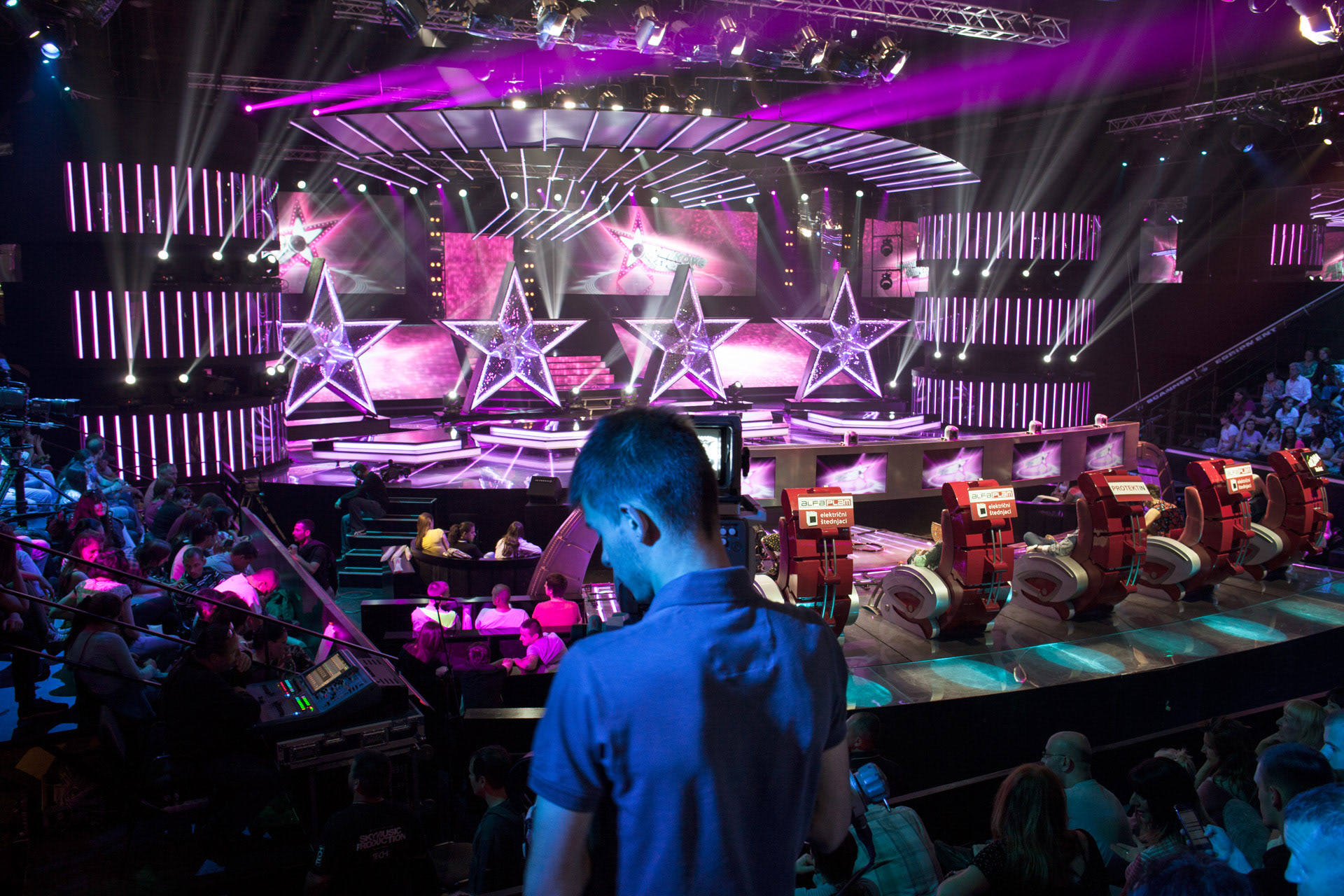
During the recordings of Pink TV Stars, the talent show of Željko Mitrović’s broadcasting. Pink TV has 3 classic channels and 55 satellite ones, as well as 25 studios in Serbia, a record label and a private air fleet

The dancer Maja Pantic during a pole dance exhibition
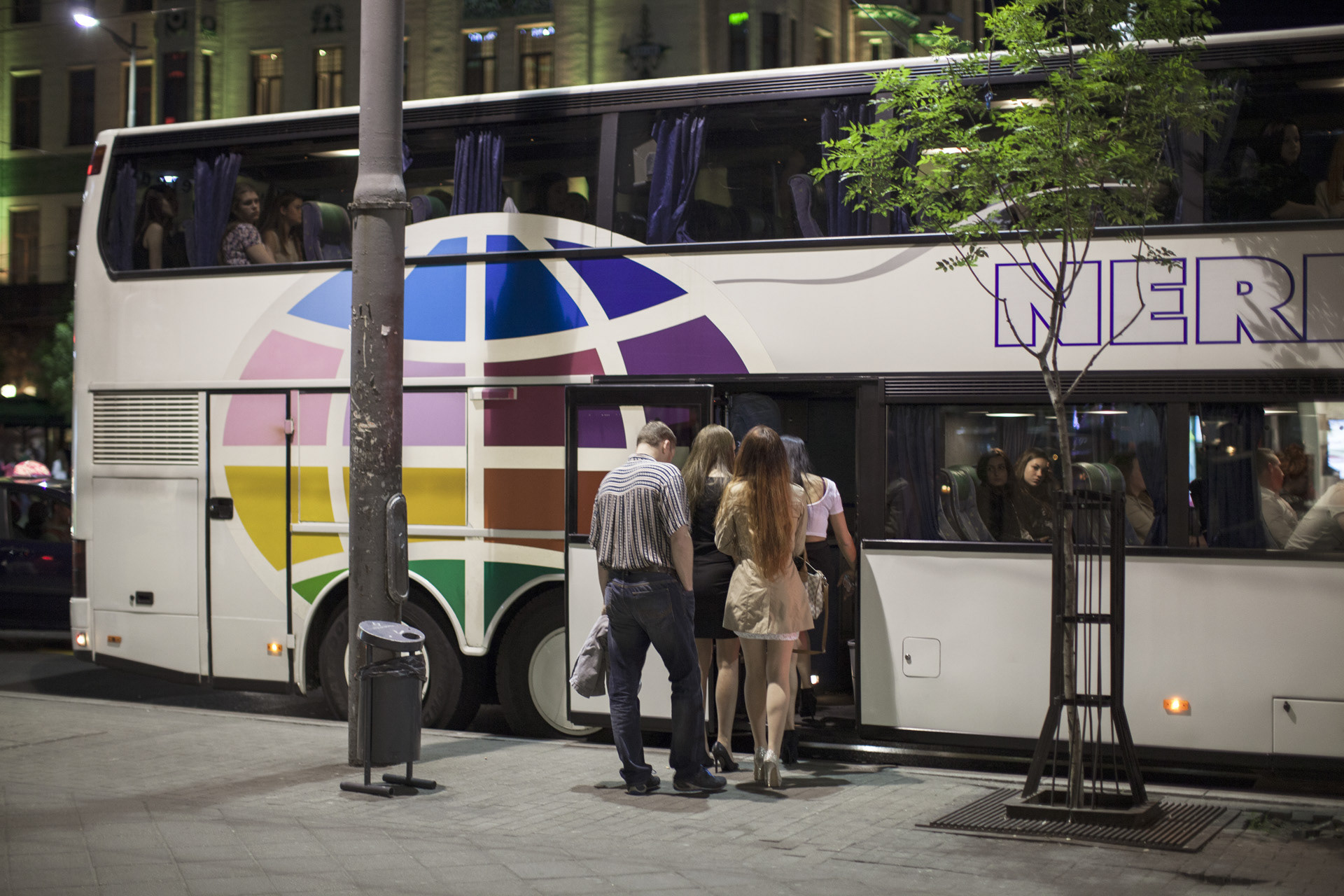
Throughout the weekend, a lot of private bus services carry young people to clubs and discos
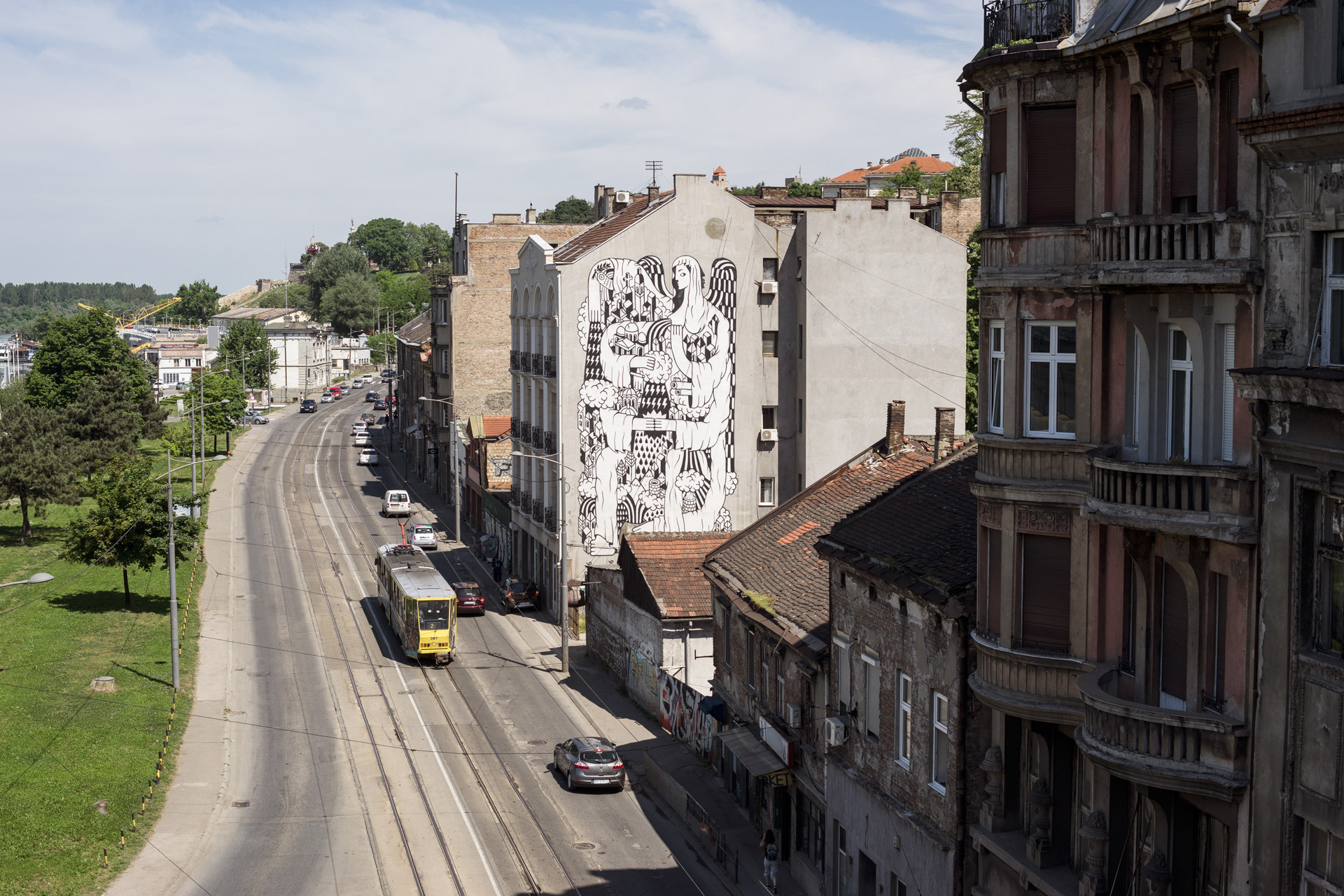
Graffiti on a building in Savamala district
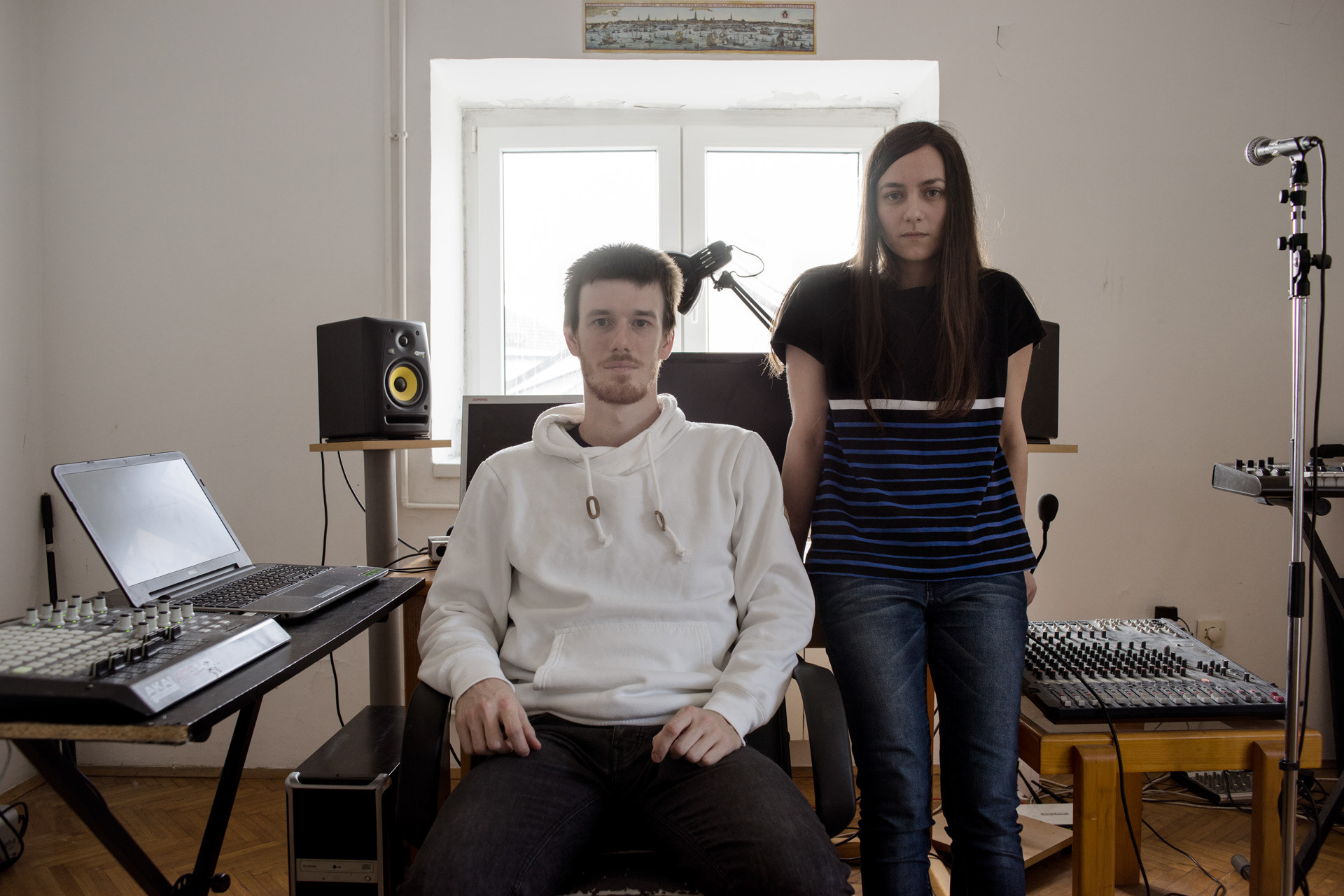
Jelena Miletić e Jovan Vesić inside their home studio. They are members of Inje, one of the main Serbian electro-pop band
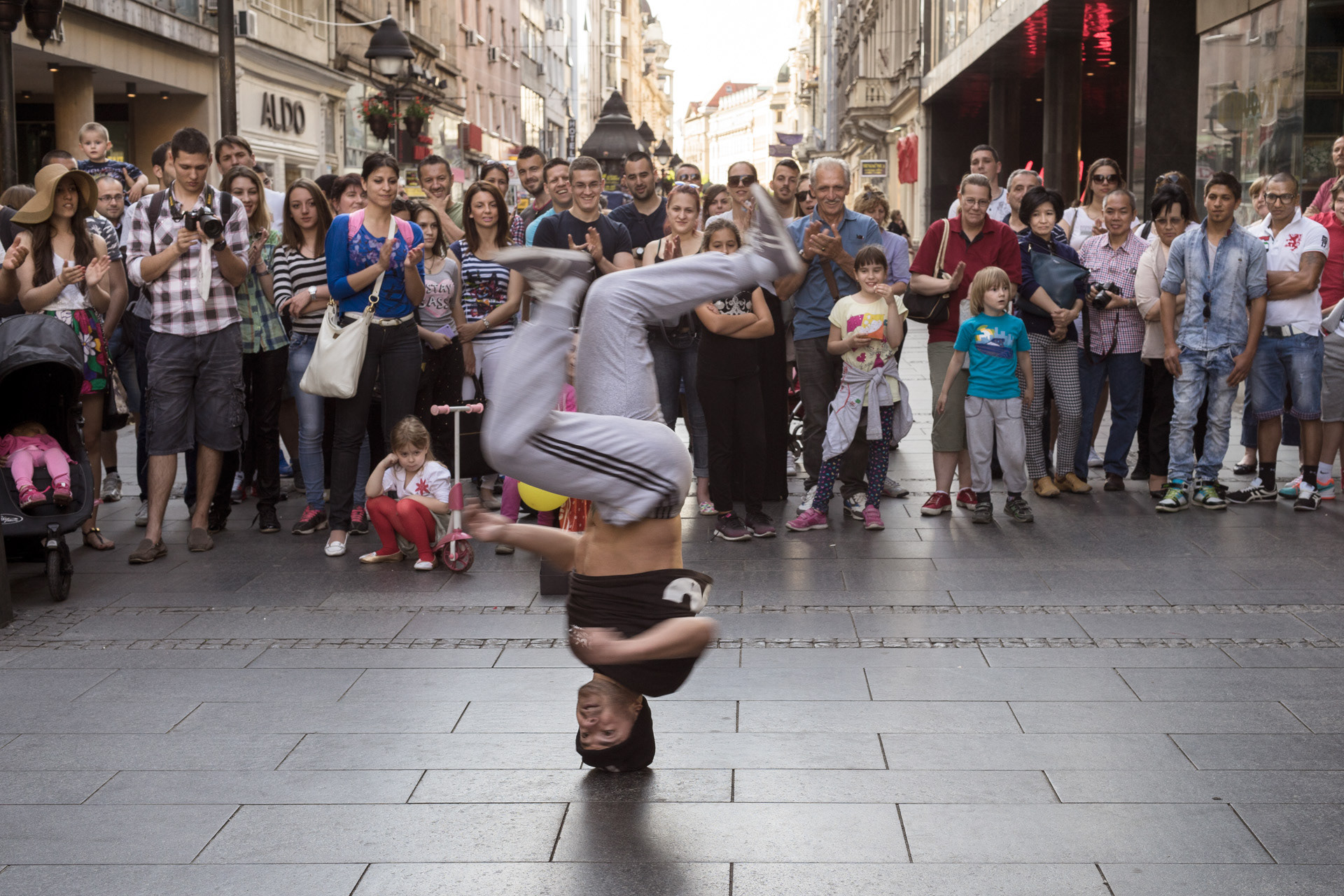
Young break dancers performing in Knez Mihailova, a stylish shopping street of Belgrade
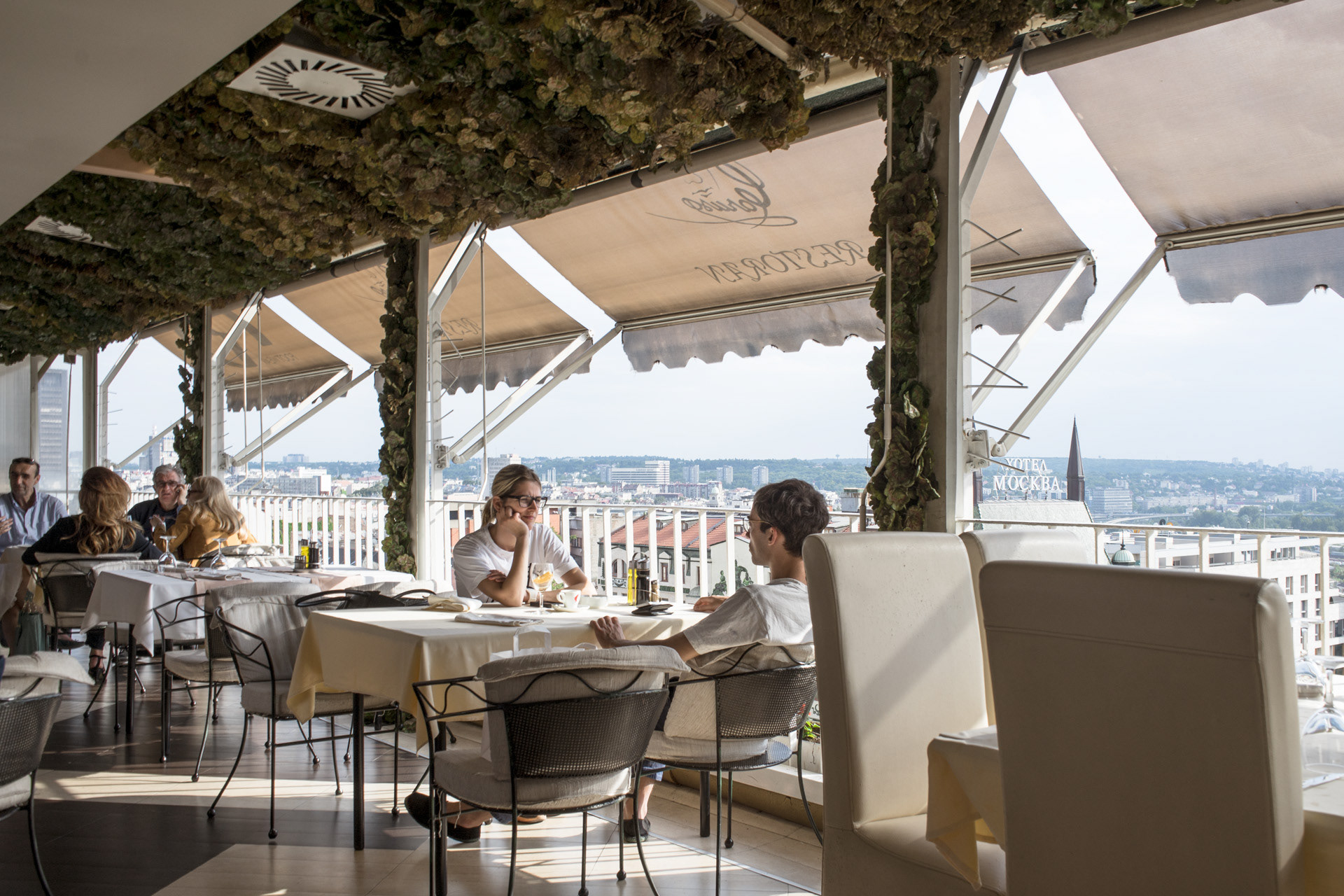
Having a break on the Caruso terrace, the chic café of the city
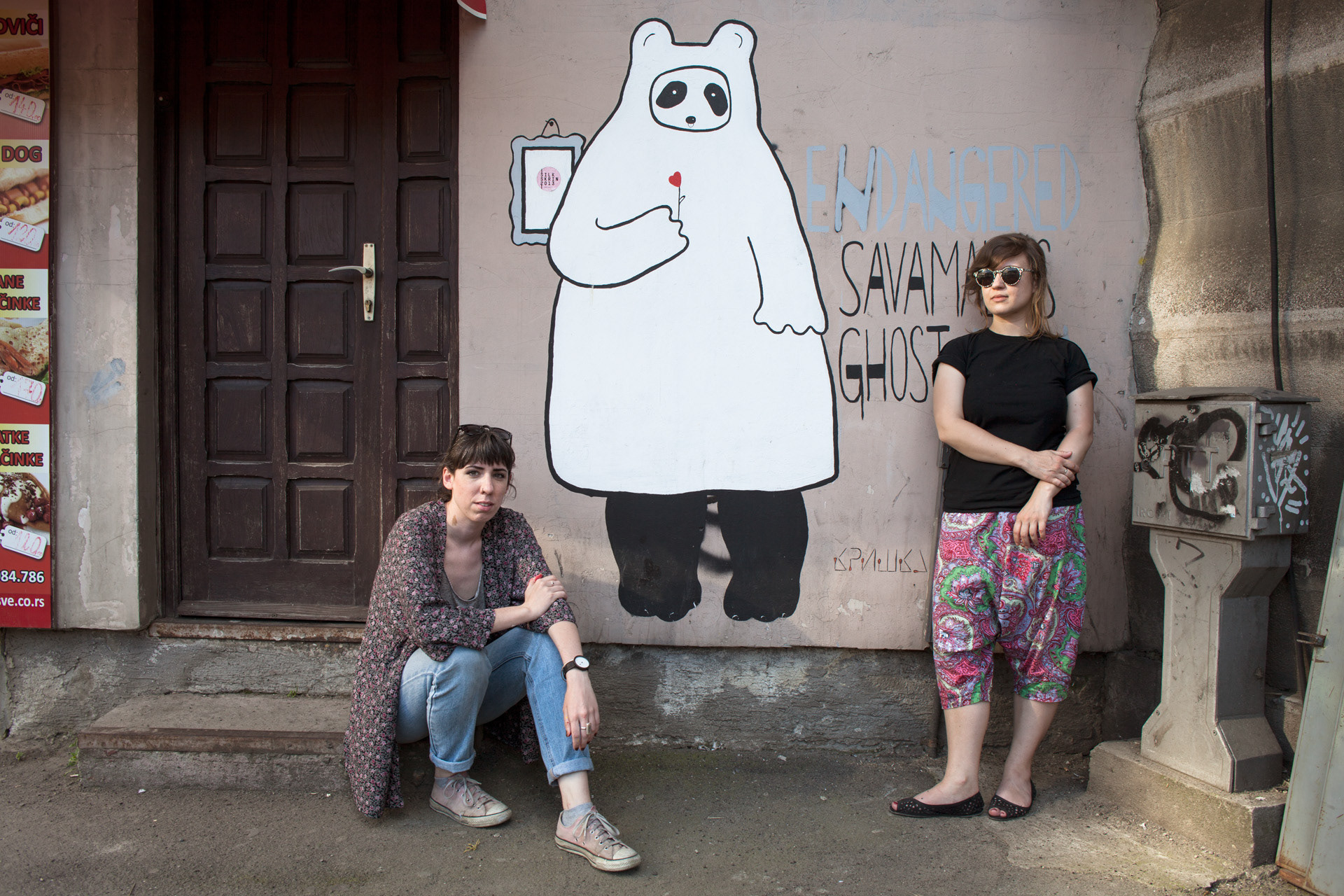
The writers Barbara Dimic and Tijana Tripkovic posing in front of one of their graffiti in Savamala district
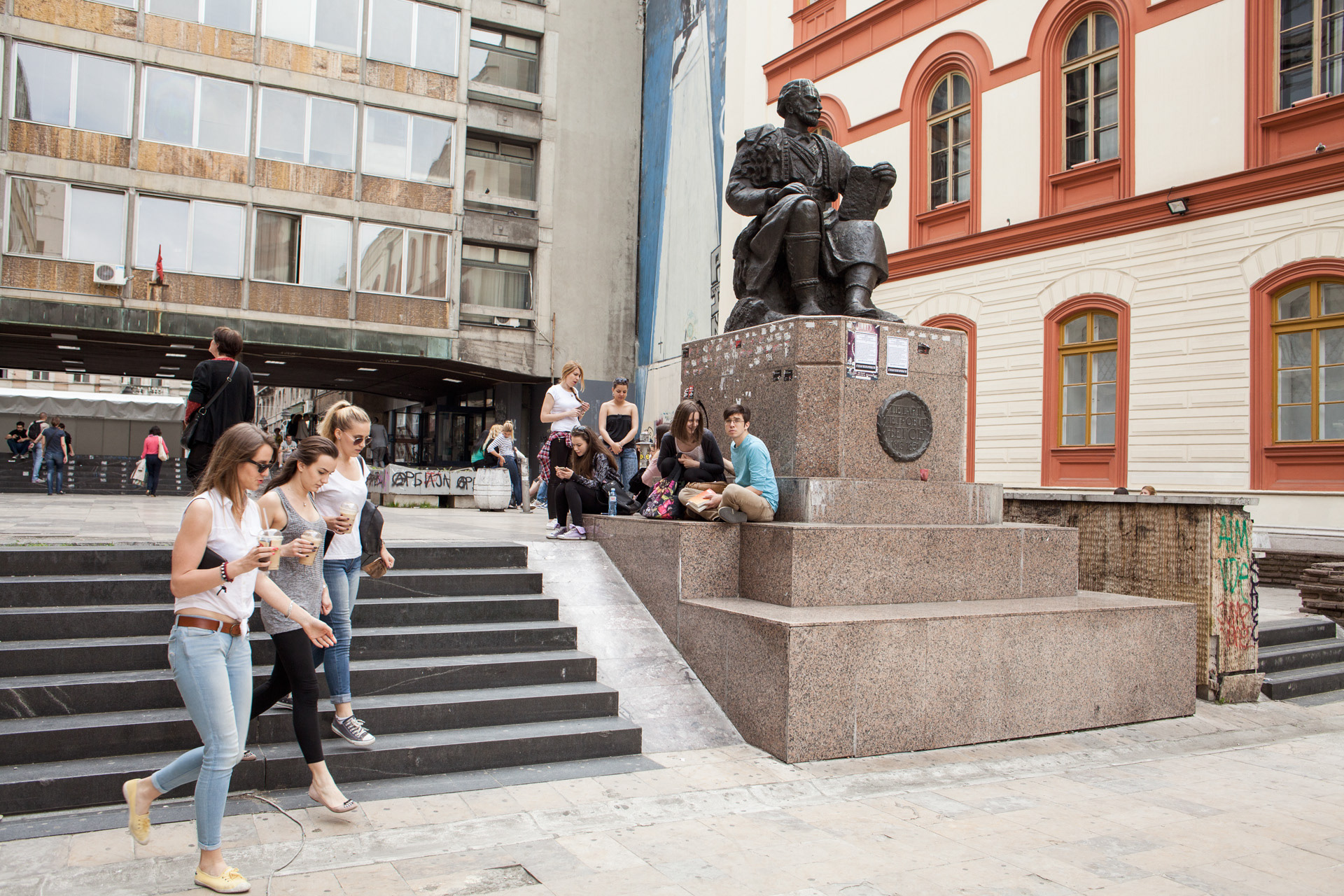
University square is one of the most popular place among the young people of the city
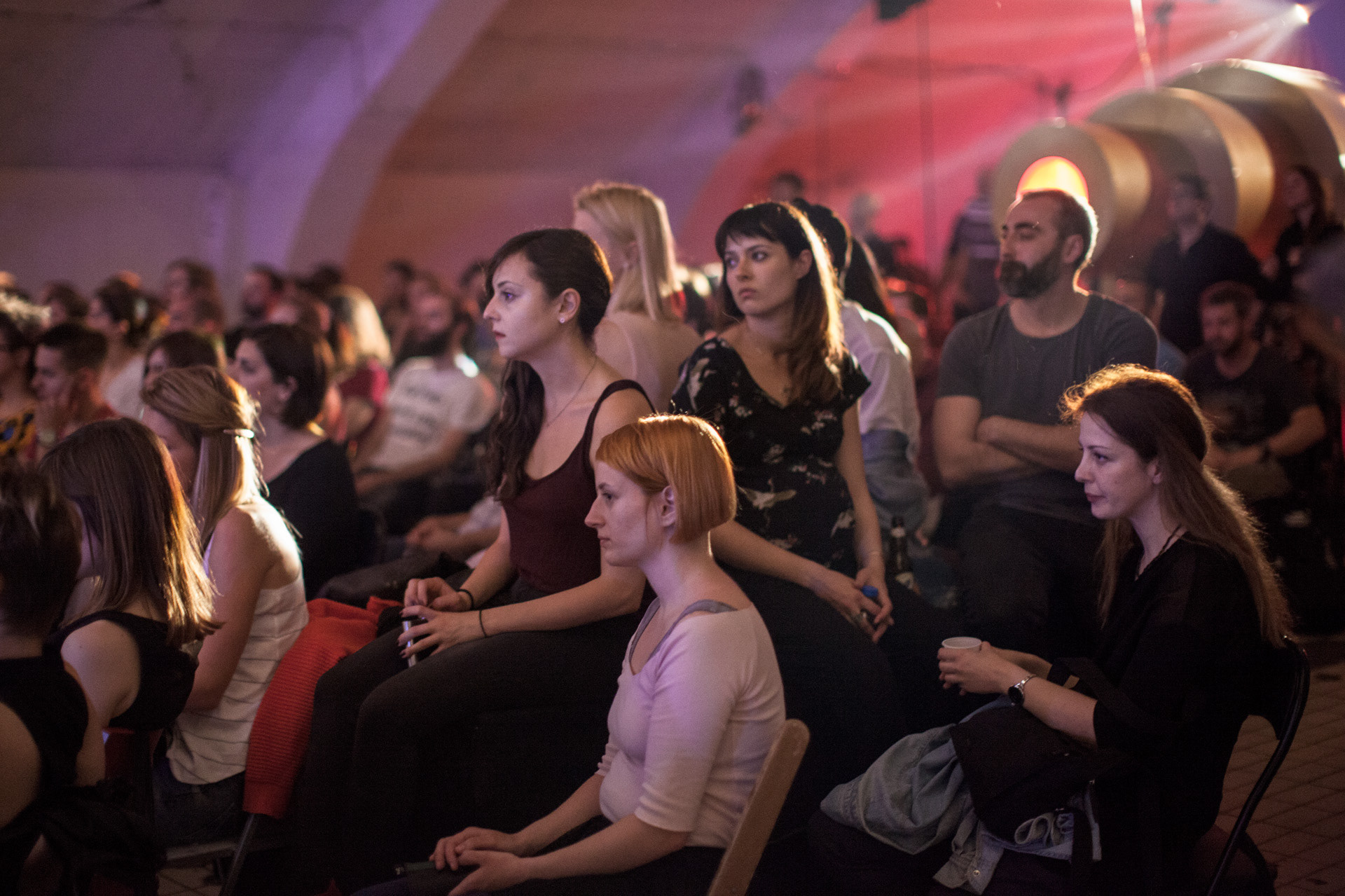
Young spectators attending a concert at Drugstore Club
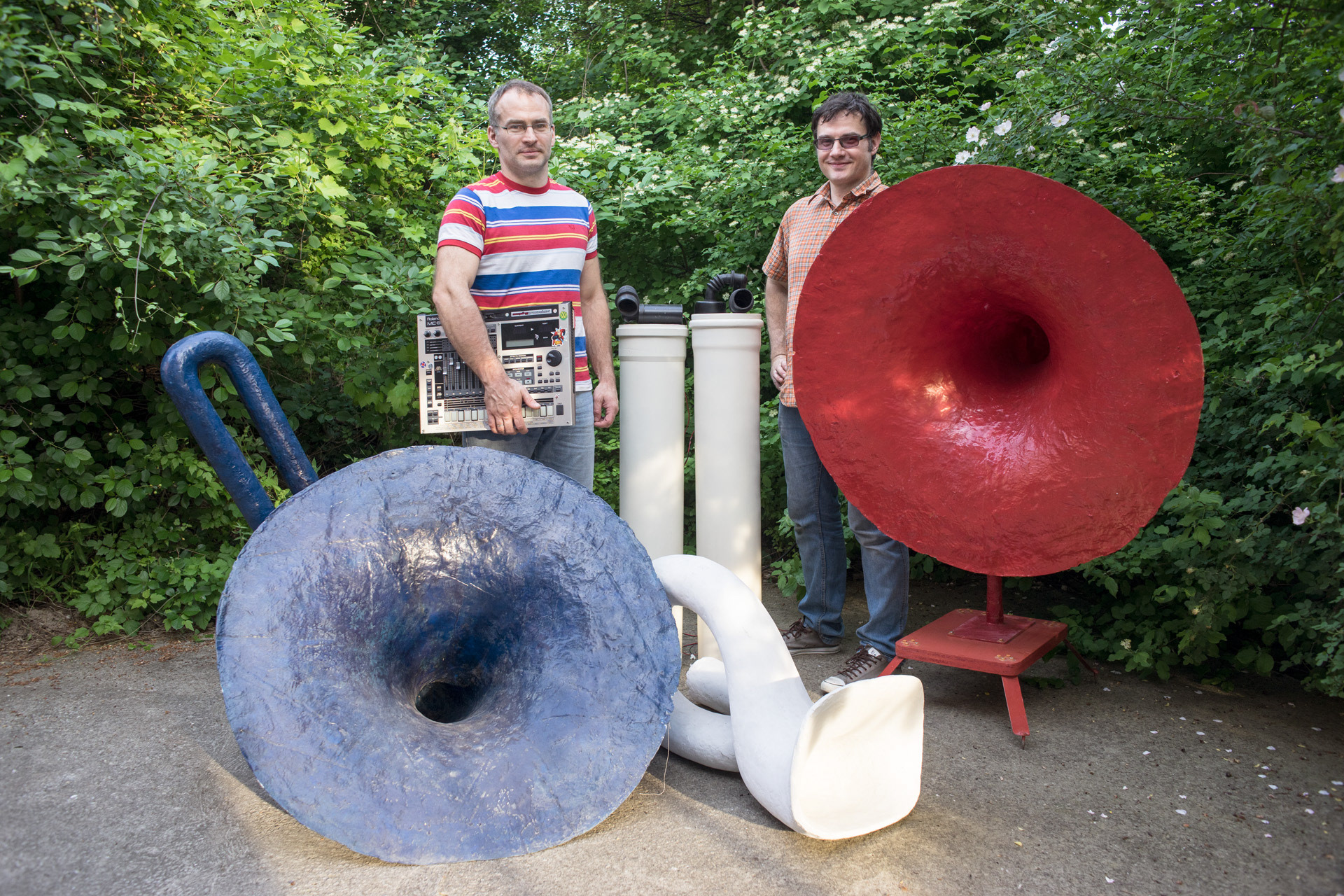
The brothers Edi and Ivan Bon posing with a few sculptures in their studio near Danube river. Edi, astrophysicist at the University of Belgrade, and Ivan, sculptor, are the member of MistakeMistake, one of the most influential band of the Belgrade scene in the beginning of 2000. Their style has changed during the years and nowadays they are performing minimalistic music shows sampling the “sound of the universe”
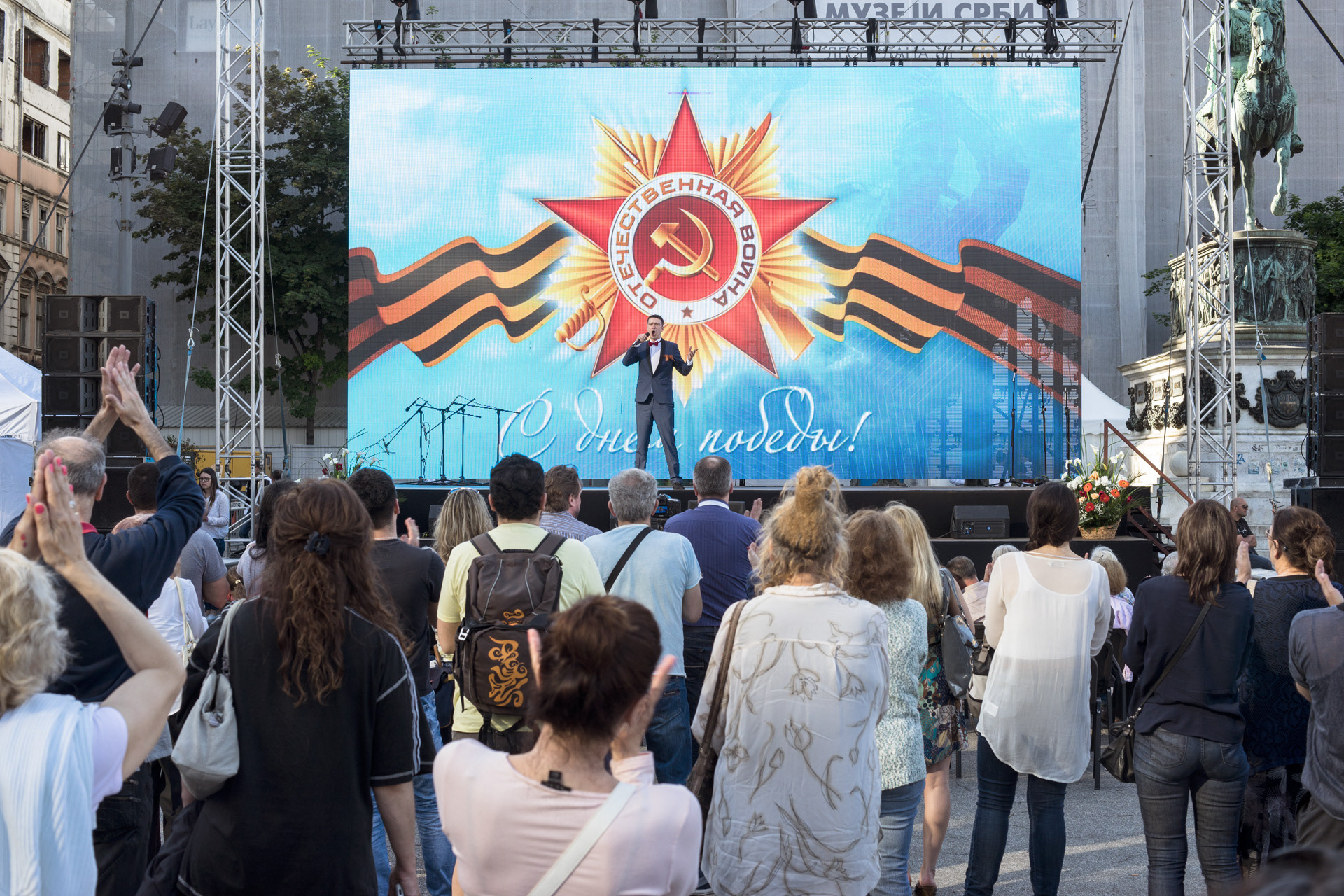
A moment of the ceremony marking 70 years since the end of World War II in Republic Square. Behind the stage, the scaffoldings cover the National Museum of Serbia , closed since 2003 because of undefined renovation works
